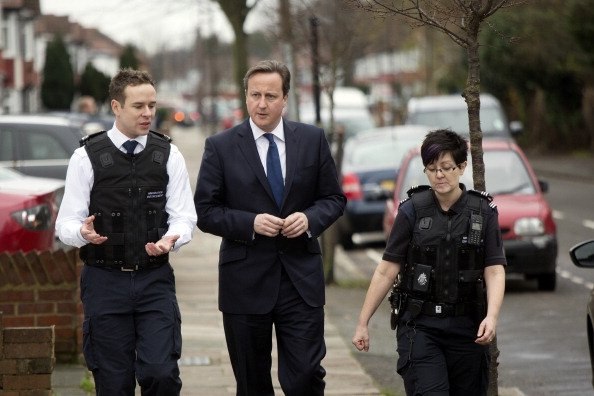Voters know what David Cameron should make his new year resolution. They want him to ban new immigrants from claiming welfare benefits during their first two years in Britain.
This demand not only goes well beyond the Prime Minister’s plans for a three-month wait. It also arouses intense passions – as we can tell from the unusual way in which YouGov explored the people’s priorities.
Most policy surveys ask respondents whether they support or oppose various ideas. This special poll for the Sunday Times is different. We set out 16 proposals that leading politicians have advanced in recent months. We then pitched them against each other in a knock-out tournament, rather like Wimbledon or the FA Cup. We started by sorting the 16 policies into eight pairs, asking people in each case which (if either) they thought would be better for Britain in 2014.
Want to receive Peter Kellner's commentaries by email? Subscribe here
In the next poll the eight “winning” policies from round one went forward to round two, organised into four competing pairs – and so on, until the last two surviving policies faced each other to decide the public’s “champion” policy. In the final, a two-year ban on welfare outscored guarantees of social care for the elderly by 51% to 40%. Plainly most people want both – but, forced to choose between them, more make their top priority the clampdown on welfare.
Click image to view full table
An early clue to the strength of feeling about immigration came from the results in round one. Most of the eight pairs of policies were designed to be specific alternatives within the same broad area of government action. Thus we posed two clear fiscal options together (should any spare money be used to cut taxes or pay down the deficit?) and, separately, two ways to help struggling families: scrapping the bedroom tax versus raising the minimum wage.
We set our immigrant welfare-clampdown against an early referendum on British membership of the European Union. We know that millions of people want both – but which do they want more? The answer is emphatic. By a margin of three-to-one, voters prefer the clampdown to the referendum. In polling terms, UKIP was the success story of 2013, and is likely to do well this year – but it seems to have made limited headway with its argument that withdrawal from the EU is the necessary first step towards achieving other goals, including tougher policies on immigration.
Even UKIP’s own supporters prefer the welfare ban over the referendum by almost two-to-one. Indeed, clear majorities of supporters of all the main parties make the same choice: voters on the Left are almost as keen as those on the Right.
Other notable round one victories included a strong preference for more housebuilding over going ahead with the high-speed HS2 rail link, and windfall tax on energy companies over a mansion tax on properties worth more than £2m a year. The biggest margin of victory (by 66% to 18%) was for ensuring that nobody needing social care need sell their homes or give up their savings. This was preferred to GP surgeries remaining open at night and over the weekend.
Perhaps the most surprising casualty in round one concerned one of the biggest stories of 2013 – the disclosures of the surveillance methods of Britain’s GCHQ and America’s National Security Agency. By almost two-to-one, we want tougher regulation of the BBC to curb waste and provide more balanced news, rather than new rules to limit the power of our intelligence agencies to monitor phone calls and emails.
However, tougher regulation of the BBC fell in round two – easily defeated by the need for more homes. And a windfall tax on the big six energy companies proved no match for guarantees of social care for the elderly.
Once again, the clamour for a welfare clampdown proved exceptionally popular. By three-to-one we make it a higher priority than cutting the government deficit. Only Liberal Democrats and the under 25s hold different priorities, putting deficit reduction narrowly ahead of new welfare rules.
The policies that survived to the semi-final provide a clear agenda for 2014. The Government would surely see it popularity soar if it could achieve all four: more housebuilding, new guarantees on social care and a higher minimum wage, as well as preventing new immigrants from claiming welfare benefits.
The two semi-final winners were not just the public choice – they were the overwhelming favourites of Tory and UKIP voters. Helping the elderly and curbing the rights of new immigrants both strike loud chords among the very voters that the Tories need to attract. Labour and Liberal Democrat voters are more divided, with many backing the same agenda but similar numbers wanting more homes and a higher minimum wage.
The final produced one of the closer contests. But in the end, the welfare clampdown emerged as the winner. Other YouGov research has found that far fewer new immigrants receive cash handouts than most people believe. But attitudes and votes are determined by perceptions more than facts. And the perception of voters as Britain enters 2014 is that immigration is the one specific problem, above all others, that they look to the government to solve this year.
This commentary first appeared in The Sunday Times on January 5
Want to receive Peter Kellner's commentaries by email? Subscribe here
Image: Getty










